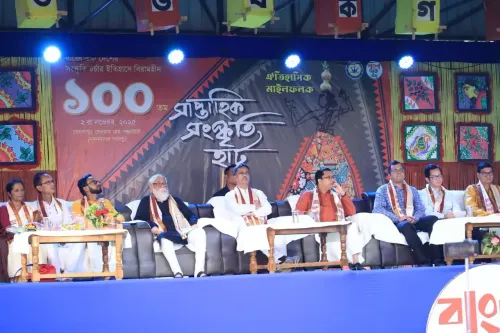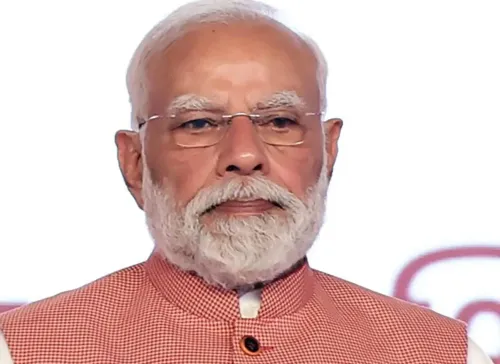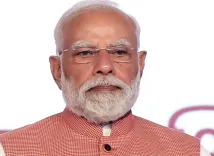Crucial Trade Climate Essential for Strengthening US-India Economic Relations: USIBC

Synopsis
Key Takeaways
- Balanced trade is crucial for US-India ties.
- India needs bold reforms to attract investment.
- Support for sectors like agriculture and MSMEs is vital.
- Tax cuts for the middle class can boost the economy.
- Energy security initiatives are commendable.
New Delhi/Washington, Feb 1 (NationPress) A balanced and transparent trade climate is essential for fortifying US-India economic relations. In alignment with President Donald Trump's call for fair and reciprocal trade, India is encouraged to take more decisive actions to tackle structural challenges and cultivate a more stable policy landscape that boosts investor confidence and fosters enduring strategic alliances, stated the US-India Business Council (USIBC) on Saturday.
Being the fifth-largest economy globally and a key ally in the Indo-Pacific, India’s ongoing economic reforms are crucial for enhancing commercial links with the US and unlocking fresh growth avenues, according to Ambassador Atul Keshap, President of USIBC.
“USIBC supports the submission of the Union Budget 2025-26, which highlights vital sectors like agriculture, MSMEs, investment, and exports, reinforcing India’s status as a vibrant player in the global economy,” Keshap remarked.
While the Budget lays out a vision for economic resilience, technological progress, and global competitiveness, India’s growth path necessitates continued and deeper reforms.
“Foreign direct investment remains stable but has not experienced significant growth, and businesses continue to navigate intricate regulatory environments. USIBC calls for a more ambitious drive for systemic reforms in taxation, regulatory frameworks, and business processes to further improve India’s global competitiveness and attract increased investment,” Keshap noted.
USIBC praised the initiative to form a high-level committee for regulatory reforms but urged swift action to identify and eliminate regulations harmful to businesses.
“A reduction in taxes for the middle class is also appreciated as it will aid in boosting consumption, savings, and investments,” said the Council.
In this context, the government’s acknowledgment of critical minerals as a strategic asset, alongside a National Critical Minerals Mission and an allocation of Rs 450 crore for the upcoming financial year, is a positive step, yet extensive efforts are still needed to establish a genuinely self-reliant supply chain.
“India’s dedication to energy security is commendable, especially with the announcement of a Nuclear Energy Mission for Small Modular Reactors (SMRs) with an investment of Rs 20,000 crore,” stated USIBC.
However, its long-term success will hinge on streamlined regulatory approvals and a clear framework for private-sector participation, it added.
“We also commend the establishment of a geospatial mission, an area that aligns with India’s core talents and capabilities and presents a potential collaboration opportunity with the United States, a leader in geospatial data creation, analysis, and application,” according to USIBC.
Likewise, while the proposed rise in FDI limits for the insurance sector from 74% to 100% is promising, reviewing the safeguards and conditions related to foreign investments in this sector will maximize investor interest.
“USIBC is actively collaborating with stakeholders to pinpoint key challenges affecting businesses in the US-India corridor and provide informed recommendations that will assist both governments in enhancing commercial exchanges in both directions,” Keshap concluded.









